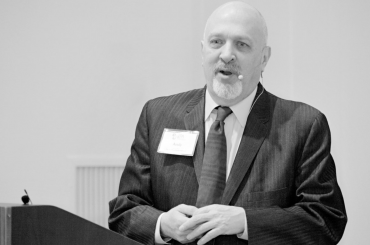Whether you’re a single- or multi-system mobile-DJ operator, you can gain a lot of insight from job interviews — if they’re done correctly.
But what if someone were to turn the tables and interview you?
We talked to a handful of CEOs and business owners outside of the DJ industry, and asked them to tell us their favorite questions they ask at a job interview.
We then asked them to explain why it’s their preferred question. Usually, it’s because that question provides the best insight into a potential candidate. But we think it’s a good practice for any business owner to ask himself these questions, too.
So here they are. Think carefully… you just might be able to help your own brand positioning by coming up with creative answers.
- No. 1: “How many messages are in your inbox right now?” and No. 2: “How do you manage email?” – Andy Crestodina, Principal, Orbit Media
“The answer to question No. 1 will tell me a lot,” says Crestodina. “What is their approach to time-management? Are they disorganized? Are they an overly compulsive perfectionist? How do they handle communication, service and support? How to they manage stress?
“For question No. 2, email is a challenge for almost everyone, so this question will give insights into their general problem-solving approach. You might hear frustration, you might hear about tools, you might hear about prioritization approaches.”
- “What was your journey like to get where you are?” — Hari Ravichandran, founder and CEO of Endurance International Group
“You can learn so much about someone based on what their creative path was and the decisions they made along the way,” says Ravichandran.
- “What do you hope to achieve in your next position?” – Lynn Jurich, CEO, Sunrun
“Asking candidates this question — and how they will reach that end-goal — is a good way to determine one’s commitment to improvement and continued learning,” says Jurich. “I believe the most valuable employees are those who are consistently looking to challenge themselves to be better and are willing to face some uncertainty and failure on the road to doing so.”
- “Tell me about yourself.” — Sean Foster, SEO, Crowdtap
“It’s a simple, yet effective way to get at the DNA of a candidate and it creates an opportunity to learn what they are most passionate about,” says Foster. “Open-ended questions force people to make choices and to be a storyteller. I want to understand the person, not the candidate.”
- “Tell me how you’ve approached change.” — Gerald Hassell, Chairman & CEO of BNY Mellon
“We’re in an era where adaptability is one of the most important qualities in employees at every level,” says Hassell. “The answer to this question, and the interviewee’s body language and demeanor, will tell me a lot about their readiness for change and aptitude for rolling with the punches and inspiring their teams.”
- “What are you really into outside of work?” — Piers Fawkes, Founder, PSFK
“It doesn’t matter what it is, but if they don’t have a passion or curiosity, we don’t hire them,” says Fawkes.
- “How do you learn?” — Stephen Baker, CEO, Attivio
“Every employee is constantly faced with new tasks and new challenges,” says Baker. “The best employees always want to be pushed out of their comfort zone. Having a candidate articulate how they would learn a new topic or skill is a great sign of discipline, organizational skills, and intellectual curiosity. This one question provides critical insight into how you can expect them to perform given the particular demands of the role you are potentially hiring them for.”
- “Don’t just tell me that you were a rock star – show me how!” — Andreas Bodczek, CEO, Fyber & RNTS Media N.V.
“As CEO, I usually enter the discussion late into the interview cycle, so what interests me is assessing how the candidate perceives the role and its challenges after all of the discussions they’ve already had with other team members,” says Bodczek. “At this stage, they should have an impeccable grasp of the challenge at hand and what they can bring to the table. If this isn’t clear, an alarm bell rings in my mind. I also challenge candidates to be extremely specific about their personal contributions to any successes they highlight on their resume.”
- No. 1: “How did you get your last job?” No. 2: “On a scale of 1 to 10, how lucky are you?” — Are Traasdahl, Tapad CEO & Founder
“On question No. 1, it’s a very good sign if people consistently get jobs through previous work relationships,” says Traasdahl. “It indicates the ability to function well on a team.
“And the answer to question No. 2 tells me a lot. If they say ‘10,’ things have likely come too easy — they may not be able to read situations very well. If they say a ‘2,’ it’s a likely sign of someone who consider themselves a ‘misunderstood genius.’ When it lands closer to a ‘7,’ there’s a sense that the candidate has a healthy balance of appreciation for their good fortune and an equal ability to work hard.”
- “Who are your peers? What are your strengths and challenges?” — Bill Johnson, CEO, Citi Retail Services
“Evaluating self-awareness,” he says, “and whether they are still learning and growing indicates their potential to contribute to the business today and in the future.”
If you have any questions for Business Line, please send them to djtimes@testa.com.








